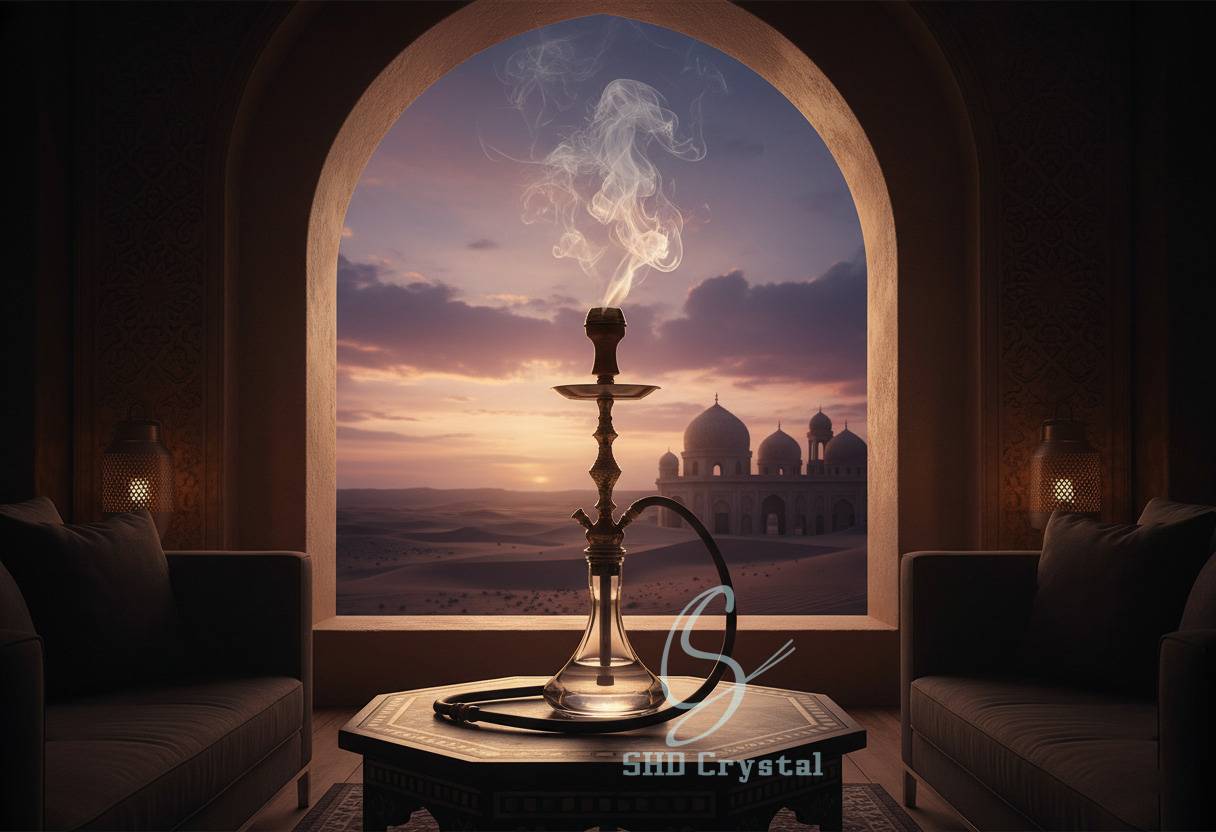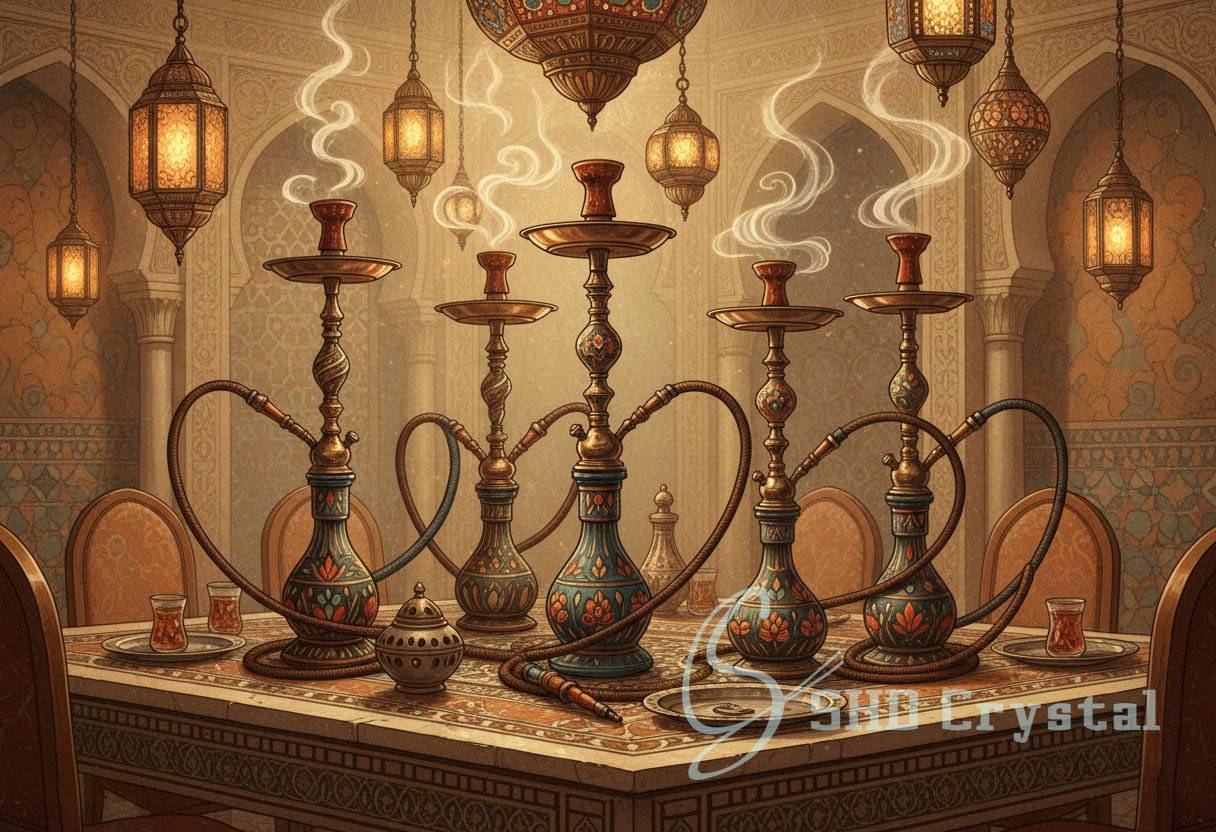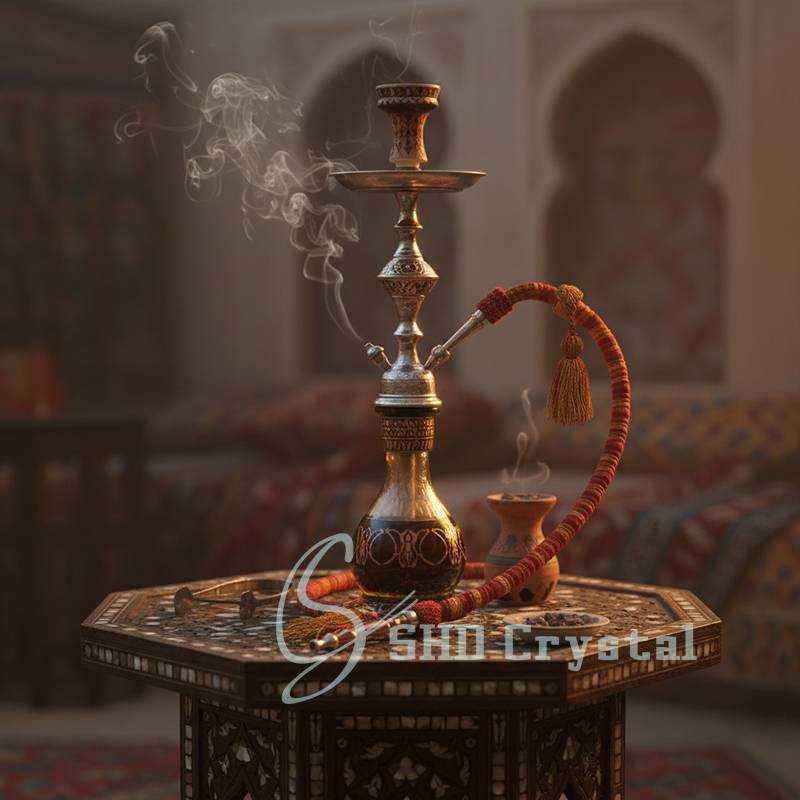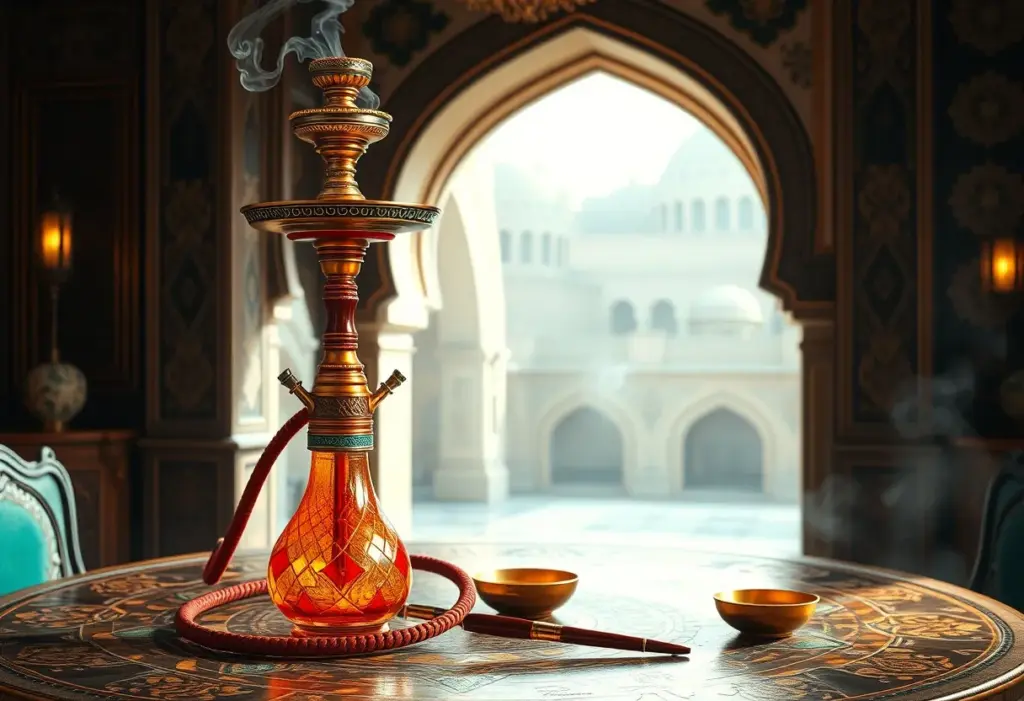> Blogs > The History of the Nargile: From Ancient Ritual to Modern Social Art
The History of the Nargile: From Ancient Ritual to Modern Social Art
Core keywords: history of the nargile, Middle-Eastern hookah culture, traditional hookah rituals
For centuries, the history of the nargile has mirrored the evolution of human culture itself—a story woven from ritual, artistry, and social connection. From sacred beginnings in ancient Persia and India to its transformation into a global symbol of leisure, the nargile reflects how tradition adapts to time without losing its soul. Its journey reveals not just the history of the nargile, but the timeless human desire to gather, share, and find meaning in simple, deliberate moments.
The History of the Nargile and Its Enduring Legacy

Chapter 1: Origins — A Sacred Ritual of Purification
The history of the nargile stretches back more than 500 years, across Mughal India and Persian cultural spheres. In its earliest form, the nargile—or hookah—was a simple yet meaningful device. Early smokers used a coconut shell filled with water, a bamboo stem, and a small clay bowl to cool and purify tobacco smoke. This act of filtering smoke through water was not only practical—it carried spiritual symbolism. The rising smoke was seen as a bridge between the material and the divine, a reflection of traditional hookah rituals that emphasized purification and contemplation.
When the idea reached Persia, it took on new cultural significance. There, the “nargile,” derived from the Persian word nārgil (meaning coconut), became part of everyday social and intellectual life. It was no longer a solitary ritual—it was a shared experience, enjoyed by scholars, poets, and rulers alike, laying the foundation for what would later blossom into Middle-Eastern hookah culture.
Chapter 2: The Ottoman Era — Refinement and Symbolism
As trade and cultural exchange flourished, the nargile found its most iconic form in the Ottoman Empire. By the 17th century, it had become a central symbol of refinement and hospitality across Turkey and the Levant. Ottoman artisans transformed the humble coconut shell into a masterpiece of design: hand-blown glass bases, engraved metal stems, and silk-covered hoses.
The history of the nargile during this era is also the story of craftsmanship. Each hookah was a work of art, reflecting the wealth and taste of its owner. In Istanbul’s coffeehouses and palace salons, the nargile was more than a smoking tool—it was a statement of culture, patience, and respect. Serving a nargile to a guest signaled honor. Within these settings, traditional hookah rituals reinforced values of hospitality and slow conversation—elements that still define Middle-Eastern hookah culture today.

Chapter 3: Journey to the West — Exoticism and Romanticism
In the 18th and 19th centuries, European travelers encountered the nargile during journeys through the Middle East. Fascinated by the calm ritual and intricate design, they brought the idea home. In European salons and artistic circles, the hookah became a symbol of the era’s Orientalist imagination and intellectual leisure. Painters, poets, and philosophers treated the practice as a meditative counterpoint to industrial modernity.
Writers like Théophile Gautier and painters of the Romantic era portrayed the nargile as a motif of mystery and serenity. It was admired not for nicotine, but for rhythm—the quiet bubbling of water, the slow exhalation of fragrant smoke, the conversation it invited. The history of the nargile thus crossed continents, merging with Western curiosity while keeping the spirit of traditional hookah rituals alive.
Chapter 4: Modern Transformation — Technology Meets Tradition
In the 20th and 21st centuries, the nargile evolved again. Modern manufacturing introduced durable glass, stainless steel, and precision air systems. The rise of shisha cafés around the world—from Istanbul to London, Dubai to Los Angeles—turned the nargile into a global social experience.
Contemporary hookah lounges blend tradition with innovation: electronic heating systems can replace charcoal, decorative lighting accents bases, and flavored tobacco (often called mu‘assel) adds variety. Yet beneath these updates, the same ritual endures—the shared smoke, the slow pace, the conversation that transcends language.
Today, the history of the nargile continues to evolve through global youth culture. On social platforms, the hookah appears not only as a cultural artifact but also as a lifestyle statement, representing relaxation, connection, and continuity with the past—a living legacy of Middle-Eastern hookah culture.

Chapter 5 (Continued): A Cultural Bridge Across Centuries
What makes the nargile timeless is its ability to connect worlds—ancient and modern, East and West, sacred and social. Its story is one of adaptation without losing essence. The same water pipe that once symbolized purity and intellect now serves as a bridge between cultures, bringing people together through ritual and conversation.
Understanding the history of the nargile helps understand humanity’s search for connection. Across centuries and continents, people have gathered around its soft bubbling sound, sharing not just smoke but stories, memories, and meaning. In every puff lies a piece of history—a whisper from the Mughal palaces, the Ottoman salons, and the modern cafés that keep this living tradition alive.
【Additional Add-ons】Experience the Living Tradition
To truly appreciate the centuries-long history of the nargile, there is no substitute for experiencing it firsthand. One option in the Middle East is HookahPlace Downtown Dubai, located in:
- Boulevard Plaza Tower 2, Sheikh Mohammed bin Rashid Boulevard, Downtown Dubai, UAE.
This lounge blends heritage and innovation—a reflection of how the nargile bridges past and present. Set in the cultural heart of Dubai, it offers an atmosphere where both enthusiasts and newcomers can savor the art of shisha.
Stay Connected with SHD Crystal
If the history of nargile has sparked your curiosity, don’t stop here.
Follow SHD Crystal to discover the latest insights, craftsmanship updates, and cultural stories behind the evolving world of water pipes and hookah design. Whether you’re a connoisseur or simply intrigued by the artistry and tradition behind shisha, SHD Crystal is your trusted window into this ever-evolving culture.

Follow SHD Crystal today
- : No. 68 Shasong Road, Shajing Street, Bao'an District, Shenzhen, Guangdong Province
- : +86-755-2335 8353
- : info@shdcrystal.com
Follow us